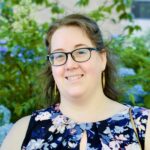Leading by Example: Faculty Initiatives for Sustainable Development
Introduction
The United Nations Sustainable Development Goals (SDGs) are a set of 17 interconnected goals established by the United Nations in 2015 as part of the 2030 Agenda for Sustainable Development. These goals aim to address global challenges such as poverty, inequality, climate change, environmental degradation, peace, and justice. The SDGs provide a comprehensive blueprint for achieving a better and more sustainable future for all.
Higher education institutions (HEIs) play a crucial role in advancing the SDGs. They are pivotal in educating and training future leaders, conducting research that drives innovation, and fostering community engagement. By integrating the SDGs into our curriculum, scholarship, and campus operations, we can:
- Educate and Empower: Equip students with the knowledge, skills, and values needed to address complex global challenges (Higher Education Sustainability Initiative, 2021).
- Innovate and Research: Conduct research that contributes to sustainable solutions and policy development (Chankseliani & McCowan, 2021).
- Engage and Lead: Serve as role models and leaders in sustainability practices, influencing local and global communities (Sohail, 2023).
KPU is an active supporter of the SDGs, having signed the SDG Accord and committing to deliver on the SDGs, report on progress, and share our learning with other institutions. In AY 2022/23, the Provost Office supported a research project to map KPU’s “progress towards meaningfully embedding sustainability into its culture, policies, and practices” (Ho et al, 2023, p. 3). This report also provided some recommendations for next steps KPU could take in our SDG journey, including number fourteen to,
“provide project-based time release opportunities and allocation of accountable time for faculty members to support the creation of SDG teaching resources, such as developing a repository of current SDG teaching practices and resources at KPU, and notable practices on designing curricula and teaching with the SDGs as a framework.” (p. 43)
In Spring 2024, the Teaching & Learning Commons took on this recommendation and launched a UN SDG Champions program, providing single course time releases to six KPU faculty to pursue individual projects aimed at advancing the UN SDGs.
The six UN SDG Champions in the first cohort “completed” their projects at the end of Spring 2024, but work towards the SDGs is ongoing and our Champions will continue their work into the future. This blog post will share some reflections from each Champion about their experience and the UN SDGs.
Kathy Dunster, HORT
As a landscape architect and plant ecologist, I have been connected in my professional practice to UN conservation initiatives through my work on species and ecosystems at risk for the past 40 years. In 1987 the UN’s World Commission for Environment and Development published “Our Common Future,” followed by the 1992 UN Programme of Action on Sustainable Development. In 2015, the SDGs were introduced, recognizing for the first time that cities and communities were central to achieving the goals. It was immediately obvious that the SDGs needed to become the focus and heart of the Urban Ecosystems degree, both in vision, learning outcomes, and course learning objectives. In 2019-2020 I was a KPU UN SDG Open Pedagogy Fellow bringing renewable assignments into my courses.
I worked on two tasks. The first was to develop a concept paper for the creation of an SDG House where the KPU universe (faculty, staff, students, teaching, learning, operations) can be better connected within our community to the SDGs, and to provide a means of reaching out beyond the university to help outside groups, NGOs, businesses, local government incorporate the SDGs into the work they do. The second task was to continue to develop a new transdisciplinary urban ecosystems degree curriculum centred on the SDGs – from programme vision to course learning outcomes and objects through to renewable assignments.
Kathy also gave a brief presentation for the KPU Sustainability Hub on the proposed SDG Hub [PDF].
Rajdeep Gill, IDEA
My project focused on deepening department-wide dialogue and collaboration around how we cultivate interdisciplinary learning in the service of public and societal literacies and capacities. I facilitated in-depth departmental conversations regarding the unique ways IDEA can develop the capacities of students to serve the world, with critical-creative engagement with UNSDGs serving as an anchor for the conversations. I collaborated with two other IDEA faculty members, Zainab Ibrahim and Byron Peters, on multiple new courses which consciously have the orientation and space for meaningful integration of UNSDG principles and initiatives. For example, in a proposed course on the power of our inner lives, students can be supported to examine their inner ecologies and discover how they may connect them to universality, shared dignity, and mutual flourishing; this intricate exploration of the student’s inner humanity in turn carries the possibility of deepening their understanding and inhabitation of their ethical and social agency—cognitive, social and environmental justice-related actions, depthful participation and accountability, a richer discovery of indivisibility. I undertook the external consultations for the three new courses along with preparing and submitting individual course proposals for them. Further work on the curriculum will continue past this term.
A wonderful legacy of the Championship for me will be continued involvement in UNSDG related conversations and initiatives, not only within our department, but also across the University.
We are living in a time of omnicide, a world on fire, and we desperately need the gifts and capacities of every human—including yours—to transition to a more beautiful, loving and just world.
Pamela Ip, MRKT
Introducing UN SDGs to Marketing Faculty: My primary objective was to familiarize colleagues with the UN SDGs and demonstrate their relevance to our courses. I have gathered qualitative data through discussions with 4-5 colleagues and consultations on assignments I added a UNSDG section on our departmental Moodle site.
Integration into Program Review: I worked on identifying opportunities to integrate SDGs into our program review processes. This could contribute to a template for future program reviews.
Networking and Collaboration: Engaging with colleagues from various departments and faculties to exchanging ideas and insights. I was able to broaden my perspective on integrating SDGs into education and establish future opportunities for collaboration.
Development of Resources: I collaborated developing a WordPress resource site, which will serve as a guide for faculty, offering practical tips and resources.
Looking ahead, I am committed to promoting SDGs in my courses and encouraging discussion during departmental meetings. I also aim to explore professional development opportunities and conferences to deepen my knowledge and share experiences with integrating SDGs into marketing education.
Teach with Impact.
Pamela also created content for the forthcoming UN SDGs and Teaching Practices website.
Constanza Rojas-Primus, LANC
My project was about contributing to advancing the integration of UN SDGs in the department of Language and Cultures and providing support to my colleagues in doing so. I was able to facilitate Teams meetings to increase awareness in relation to Foreign Language teaching with UN SDGs as well as facilitate a vision that the LANC department can based future work when integrating UN SDGs into teaching and learning in our programs.
Some LANC colleagues and I will continue to be working together going forward as we would like to create a temple teaching unit on Tourism and Sustainability that can serve as a base to integrate UN SDGs in any language discipline we offer. Moreover, the temple will also serve as a base for any interested LANC faculty who also teaches culture courses within the department. We hope to advance this temple teaching unit over Summer 2024 and discuss content that can be added to our language offerings in Fall 2024 and onwards. The LANC department also added a new committee on sustainability to the department committee list to which I will serve as a LANC representative for the upcoming year.
I hope this committee will ensure keeping track of all activities about “sustainability” that are taking part within KPU.
If you think that Higher Education has a role to play in building a more sustainable world, the UN SDGs Championship is worth undertaking.
Constanza also created a poster summarizing Everything You Need To Know About SDGs [PDF].
Constanza also created content for the forthcoming UN SDGs and Teaching Practices website.
Marcelo Machado, BUSI
My project initially aimed to assess the readiness of the Melville School of Business (MSB) to implement UNSDG and determine the maturity stage of this process. This involved a literature review and bibliographic research to identify the state-of-the-art in the field. Comparing MSB’s current state with benchmarks helped identify gaps, leading to recommendations for MSB leadership.
However, I discovered multiple ongoing initiatives at MSB, such as the indigenization strategy and UN PRIME membership, prompting a shift towards a more practical goal: integrating UNSDG into programs and courses. The best approach was to embed UNSDG into school learning outcomes (SLO) and program learning outcomes (PLO). MSB’s quality assurance committee, as part of ACBSP accreditation, measures learning outcomes within the business education framework (BEF). Including UNSDG in SLO and PLO ensures consistent goal measurement by the quality assurance team.
As the UNSDG Champion, I engaged with various departments, spoke at Faculty Council and Chair meetings, and joined the quality assurance group. My main achievement was securing buy-in from MSB leadership, chairs, and faculty members. This led to multiple department-level initiatives stemming from my work. The process of incorporating UNSDG into SLO, PLO, and CLO will be ongoing and require continuous monitoring.
This project was a fantastic opportunity to step out of my comfort zone, collaborate with faculty across KPU, and learn from diverse perspectives, all working towards the same principles.
Marcelo also wrote a research paper on “The Responsible Management Education Framework: Transforming Management Education for the Next Generation of Leaders,” which is currently awaiting publication.
Mina Sahota, HRMT
“Engaged pedagogy does not seek simply to empower students. Any classroom that employes a holistic model of learning will also be a place where teachers grow, and are empowered by the process.” bell hooks, Teaching to Transgress
As a fan of hooks’ incredible writing, Teaching to Transgress inspired me to see the classroom as a place of incredible opportunity for students, and for educators. This spring in my role as a UNSDG Champion, I embraced the idea of exploring how my peers in the Human Resources Faculty were incorporating the UNSDGs into their classrooms. Through an anonymous survey I was able to learn more about the current practices, the challenges and the big, bold ideas they hold for this work. This project has given me a baseline to continue holding conversations about ways our faculty can engage students and self in UNSDG work.
One of the key learnings from the survey was that the classroom is a place where educators too are learning, especially when it comes to complex topics like UNSDGs.
Organizations seeking to make a real impact in UNSDG work must be prepared to fund and support that learning.
Mina compiled her findings from the survey into a report: Surveying KPU’s Human Resources Management Faculty Perspectives: Integrating UNSDGS In the Classroom [PDF]
Following the Leader
The UN SDG Champions program provides an opportunity for interdisciplinary discussions to take place about faculty barriers, about strategies to encourage engagement, and about potential collaborative projects. Topics discussed included how to incorporate the SDGs into course and program learning outcomes, how to leverage the Melville School of Business’s new PRME accreditation, navigating the program review process, and how to encourage colleagues to adopt new ways of thinking.
There were several common themes from the Champions, and many of them engaged or collaborated on similar projects. This suggests that there are opportunities for other faculty to do the same within their departments and with their colleagues.
Here are some ideas that can get you started:
- facilitate departmental conversations regarding the unique ways your discipline can develop the capacities of students to serve the world, with critical/creative engagement, with the SDGs serving as an anchor for the conversations.
- identify opportunities to integrate SDGs into your program review processes
- find out what your colleagues are doing, look for inspiration from them, and encourage collaboration and sharing
- incorporating SDGs in course and program development by making connections between course topics and SDG goals and targets
- find, learn, and join SDG-related initiatives and groups at KPU
As we’ve seen through the experiences of our Champions, integrating the UN SDGs into our academic and professional lives can lead to meaningful change. Now, it’s your turn to make a difference.
Moving Forward
The T&L Commons is supporting several initiatives to advance UN SDGs for Teaching and Learning. They Include:
- A new cohort of UN SDG Champions: In Fall 2024, Lee Beavington (Learning Centres), Ari Goelman (Business Quantitative Methods), Layne Myhre (Biology), Greg Simmons (Criminology), Lindsay Clayton (Accounting), and Conrad King (Political Science/Policy Studies) will work towards the advancement of UN SDG initiative within their respective departments/faculties. Look out for future events sharing their projects!
- Launching a UN SDG Community of Practice (CoP): creating a space where the KPU community can share their SDG projects, have candid discussions about challenges they (and KPU) face with the SDGs, and learn from each other. The CoP will meet on the 2nd Wednesday of every month from 2-4pm in the Teaching and Learning Commons (Arbutus 2400), and we welcome all KPU faculty, staff, and students. If you’re not able to attend the meetings, you can still join our online discussion space. Reach out and ask for an invite (or just show up)!
- A Fall 2024-time release for a UN SDG content developer: Maryanne Eva (Green Business Management & Sustainability) will work in partnership with TL Commons team to develop an asynchronous resource on integrating the UN SDGs into teaching practices.
Keep an eye out in the Today@ daily newsletter for more upcoming SDG-related events and initiatives from the Teaching & Learning Commons.
References
Chankseliani, M., & McCowan, T. (2021). Higher education and the Sustainable Development Goals. High Educ 81, pp 1–8. https://doi.org/10.1007/s10734-020-00652-w
Higher Education Sustainability Initiative. (2021). Assessments of Higher Education’s progress towards the UN Sustainable Development Goals. https://sdgs.un.org/sites/default/files/2021-09/HEI%20assessment%20for%20the%20SDGs%20-%20Volume%202%20HEIs1.pdf
Ho, C., Eva, M., Wood, L., Kaur, G., Sim, J., & Taylor, A. (2023). Sustainable Development Goals Mapping Project: Final Report for Kwantlen Polytechnic University. Kwantlen Polytechnic University. https://www.kpu.ca/sites/default/files/SDG%20Mapping%20Project%20Final%20Report%2020230610.pdf
Sohail, M. (2023). Why universities are so important for hitting the SDGs by 2030. World Economic Forum. https://www.weforum.org/agenda/2023/09/why-universities-are-so-important-for-hitting-the-sdgs-by-2030/

Amanda Grey
Amanda supports and facilitates Open Education initiatives at KPU, fostering a culture of openness and collaboration. She manages the Open Education Grant Program, oversees the Zero Textbook Cost Initiative, and provides active support for faculty who are adopting, adapting, and creating Open Educational Resources (OERs). She also supports faculty in engaging in open pedagogy, encouraging innovative teaching practices that enhance student learning experiences.
Amanda's goal is to enhance educational access, effectiveness, and equity, ensuring that KPU remains at the forefront of innovative Open Education teaching and learning practices.




